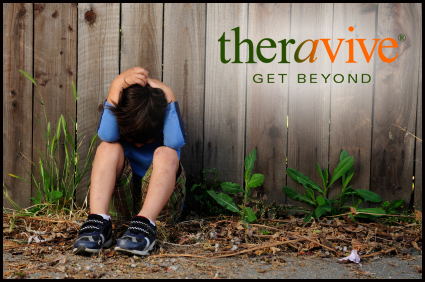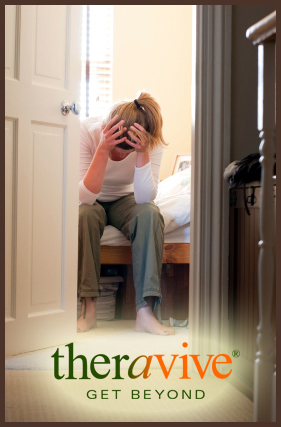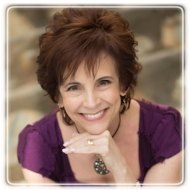 A Variety of Factors, Types and Forms
A Variety of Factors, Types and Forms
There are so many factors that can affect people as adults as the result of growing up in an abusive childhood. There are so many types of abuse and so many different forms of abuse that many times, when these survivors become adults, life may actually be harder for them than when they were children or even when they were survivors. Probably the more common issues that survivors will have as the direct result of being abused as a child are anxiety, depression, and even post-traumatic stress disorder (PTSD). Also common are trust issues and intimacy issues in adults.
The most common psychological issues that survivors tend to encounter are likely one or more of the following:
● Anxiety - Survivors may be afraid of people, places, or situations that remind them of their abuse. Maybe they won't like to be alone, are afraid of the dark, or are afraid of strangers. They sometimes have panic attacks and may be sleep deprived.
● Anger - Survivors may feel intense wrath towards their abusers, people who knew what was going on and didn't step in. Most times this is present when the victim feels that somebody could have stopped the abuse but chose to look the other way.
● Detachment - A feeling of numbness or confusion which aids the victim in shutting out the pain associated with the abuse. Many times survivors detach from those who love and support them and prefer to be alone.
● Moods - Depression and mood swings are common among abuse survivors. Anything can trigger a flashback; a smell, an innocent look from another person, a song playing on the radio, etc.
● Post-Traumatic Stress Disorder (PTSD) - Nightmares and flashbacks are very common among survivors of abusive childhoods. Along the same lines, survivors often avoid places and people who bring back memories of their childhood.
● Guilt - Feeling ashamed of what happened and feeling responsible for it is another common feeling. Many survivors also speak of feeling trashy and dirty.
● Self-Destruction - Many times survivors use drugs or alcohol to mask their feelings, or to harm themselves by cutting or burning themselves. Pill popping also fits into this category. Additionally, people oftentimes have low self-esteem and do not keep up with personal hygiene.
● Trust and Intimacy - Learning to trust others is a huge issue for survivors, particularly in intimate situations. It is likely that a survivor of childhood abuse will have problems with commitment and long-term relationships.
No Two Cases Are Alike
It is important to note that no two cases are alike, and the severity of the issues at hand are many times dependent upon how well the victim knew the abuser, if family dismissed the abuser once it was out in the open, and if anybody believed the victim's story and acted accordingly. Too many times a child tells a trusted adult (mother, grandmother, uncle) what is happening to them only for the adult to dismiss the child's allegations.
One thing that an adult survivor should insure is that they allow the people in their lives who love them to help them and to feel their pain. Although a non-victim will never truly know how a victim feels, let the people who love you give you a shoulder to cry on or an ear to listen when you need to talk about things. Do not shut those people out. Ultimately, your goal should be to seek therapy and/or counseling can help survivors move on with their lives. This process sometimes takes many months, or even years, but it is always worth it.
There are several different types of therapy:
● Narrative Therapy - Hearing/telling stories of others who overcame issues
● Eye Movement Desensitization - uses memories to work through issues
● Mindfulness Techniques - use of art, writing in a journal, meditation
● Equine-Assisted Activities - fosters decreased stress, develops trust and patience
● Group Therapy - social support with people who have had similar experiences
● One-on-One Therapy - for those who fear the vulnerability of group therapy
It's amazing that abuse can affect so many things in your life, and for so many years. Not only do survivors who are now adults struggle with anxiety and depression, many often struggle with day-to-day activities such as sleeping, working, and eating.
Strain on Relationships and Physical Health
Relationships with others are often strained because survivors find it hard to trust anybody. Therefore, it's hard to start and sustain relationships, whether it be friendships or love interests. Many times child abuse survivors have a hired rate of failed marriages and emotional relationships. There is an unspoken message that survivors of child abuse come to learn, "You are worthless." Because the victim heard these words repeatedly as a child, as an adult survivor, the victim many times has low self-esteem and little to no self-confidence.
Survivors' physical health is threatened as well. There is an increased risk for fibromyalgia, diabetes, arthritis, gynecological issues, irritable bowel syndrome, and chronic fatigue syndrome. Survivors are also more likely to smoke and drink and be less physically active.
The intentions of abusers are that they want their victim(s) to feel confused so they can have power and control over their victim(s). Abuse is never the victim's fault and is often at the hands of someone the victim knows. Here is an example of how it all just may start. Regardless of who the abuser is or what their relationship is to their victim, abusers typically start by being manipulative and tell their survivors things that are not true. Survivors grow up believing the lies. At some point in time, survivors find out the truth and realize their abuser lied. This is where all the confusion starts. Because you believed the abuser for a long while, you are torn between what you were told then and what you were told more recently. The abuser wins. This is where the victim(s) lives hang in limbo, a lot of the time for years, until it's time to seek help.
 How to Start Healing
How to Start Healing
So, how do adults who lived through an abusive childhood find the help they need to begin the healing process? First, you need seek professional help. The staff at Relationship Center of Orange County are trained professionals that can help you deal with your issues. Disclosing your story to a trusted professional will bring back emotions and maybe even flashbacks, however, it is part of the healing process for you. Many professionals believe that telling your story lifts the burden of all the things that happened in your past and allows you to separate what happened to you from who you really are, underneath it all. It is important that you share your story when you are ready to share your story. Be sure to do it in a safe place and with a therapist you believe to be trustworthy.
There are some basic requirements before therapy will be effective, such as not being in a current violent domestic situation and being safe. Additionally, there is no grand finale of counseling that will help a survivor move on from happenings in the past. Your history is just that; your history. The past will not change. Some people choose to ask their family physician for antidepressants to "take the edge off". Although that can help ease your anxiety and depression, it is still not the answer to coping with an abusive childhood.
Forgiveness, A Personal Choice
Forgiveness is something that some people believe has to be part of recovery, and something that others do not believe is part of recovery. The forgiveness issue is a personal choice. Some people think forgiveness is totally out of the question. Some religions believe in forgiveness of all acts, others believe in forgiveness knowing that the perpetrator will have to answer to God on Judgment Day, and yet others believe a perpetrator should be handled in more non-typical ways. The bottom line, if forgiving your abuser gives you inner peace, go for it.
Sometimes it helps to write things down in a journal. Writing your feelings down, say for a week or two, or every time you feel agitated, and then reading your entries a little while later can be very enlightening and may help you understand the root of your issues or at least pinpoint your triggers. Meditation can be especially helpful in times of torment. Being creative, through art, music, crafts, or anything with your hands can be good self-therapy as well.
Healing at Your Own Pace
You have to heal at your own pace. Nobody can tell you when you will feel better or why you still harbor the feelings you do. Healing is a long process that takes a lot of time and varies from person to person. The key is to find what works best for you and embrace the journey of healing. Remember, you can't change what happened in the past, but you can change the impact it is has on you today. Be strong, be focused, and be determined. You will find the way, the path to your individual healing.
Consider the professionals at the Relationship Center of Orange County for your treatment needs. Our staff are trained to help you work through your issues and realize that having been abused as a child is not your fault. Call us today at (949) 430-7389 or use our on-line scheduling tool to book your appointment.
About the Author

OC Relationship Center
, LMFTWe started OC Relationship Center because we believe that relationships are the place where everyone should feel the safest and experience the most joy. And that is what our entire mission is based upon. That relationship may be with someone you love, live with, work with or even yourself. Our caring, professional and licensed clinicians want to help you with the skills to get what you want in your relationships - whether you are single, dating, living together, married, divorced or widowed.
Office Location:
1400 Bristol Street North, Suite 245B
Newport Beach, California
92660
United States
Phone: (949) 220-3211
Contact OC Relationship Center
Professional Website:
www.OCRelationshipCenter.com